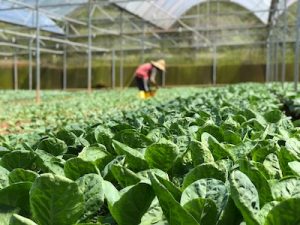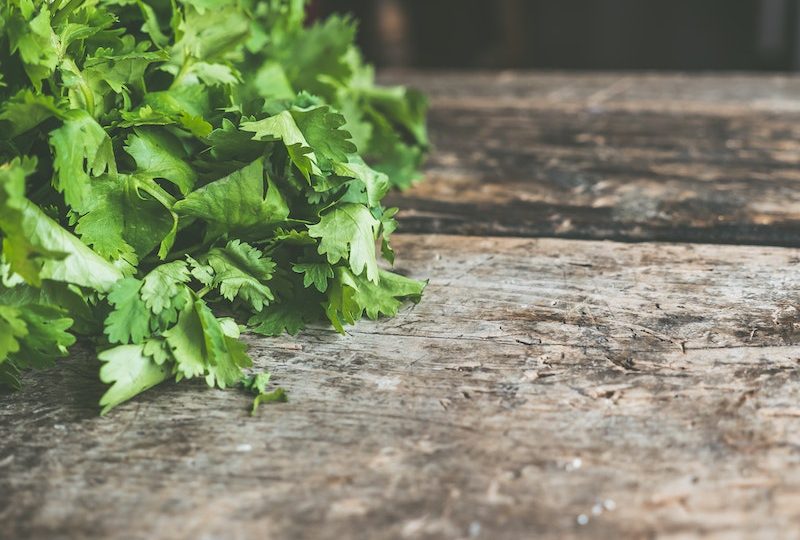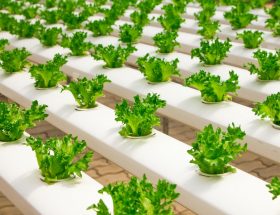This article explores the benefits of organic foods and provides a comprehensive list of the top 10 organic foods to incorporate into your diet. From nutrient-dense fruits and vegetables to high-quality proteins, this guide will help you make informed choices about the best organic foods to support a healthy and sustainable lifestyle. Whether you’re a seasoned health enthusiast or just starting to explore the world of organic foods, this article has something to offer for everyone.
Introduction
 Organic foods are becoming increasingly popular due to their many benefits, including higher nutrient content, better taste, and reduced exposure to harmful chemicals. Organic farming practices also promote sustainability by protecting the environment and preserving natural resources. In this article, we will explore the top 10 organic foods to incorporate into your diet, their nutrient profiles, and how they contribute to overall health.
Organic foods are becoming increasingly popular due to their many benefits, including higher nutrient content, better taste, and reduced exposure to harmful chemicals. Organic farming practices also promote sustainability by protecting the environment and preserving natural resources. In this article, we will explore the top 10 organic foods to incorporate into your diet, their nutrient profiles, and how they contribute to overall health.
Top 10 Organic Foods
- Leafy greens
Leafy greens, such as spinach, kale, and collard greens, are rich in vitamins and minerals such as vitamin C, vitamin K, and calcium. They are also a great source of fiber, which aids digestion and helps maintain a healthy gut microbiome. Leafy greens are low in calories and carbohydrates, making them an excellent food for weight loss and blood sugar control.
- Berries
Berries, such as blueberries, strawberries, and raspberries, are packed with antioxidants and phytochemicals, which protect the body against oxidative stress and inflammation. They are also low in calories and high in fiber, making them an excellent food for weight loss and maintaining healthy blood sugar levels.
- Whole grains
Whole grains, such as quinoa, brown rice, and whole wheat bread, are a great source of fiber, B vitamins, and minerals such as iron and zinc. They are also low in fat and cholesterol, making them an excellent food for heart health and weight management.
- Nuts and seeds
Nuts and seeds, such as almonds, walnuts, chia seeds, and flaxseeds, are high in protein, healthy fats, and fiber. They are also rich in vitamins and minerals such as vitamin E, magnesium, and zinc. Nuts and seeds are great for maintaining a healthy weight and reducing the risk of heart disease and diabetes.
- Avocado
Avocado is a unique fruit that is high in healthy fats, fiber, and potassium. It is also a good source of vitamins C, E, and K, and B vitamins such as folate. Avocado is great for heart health, weight management, and maintaining healthy blood sugar levels.
- Cruciferous vegetables
Cruciferous vegetables, such as broccoli, cauliflower, and Brussels sprouts, are rich in vitamins and minerals such as vitamin C, vitamin K, and folate. They are also a great source of fiber, which aids digestion and helps maintain a healthy gut microbiome. Cruciferous vegetables are also known for their cancer-fighting properties due to their high content of phytochemicals.
- Grass-fed beef
Grass-fed beef is a great source of protein, iron, and vitamin B12. It is also lower in saturated fat and higher in omega-3 fatty acids than conventionally raised beef. Grass-fed beef is a great choice for those looking to reduce their intake of saturated fat and support sustainable farming practices.
- Free-range chicken and eggs
Free-range chicken and eggs are higher in omega-3 fatty acids and vitamin E than conventionally raised chicken and eggs. They are also free from hormones and antibiotics, which can be harmful to human health. Free-range chicken and eggs are a great source of protein and essential nutrients for a healthy diet.
- Wild-caught fish
Wild-caught fish, such as salmon, tuna, and sardines, are a great source of omega-3 fatty acids, which are essential for brain health and reducing inflammation. They are also a good source of protein, vitamin D, and minerals such as selenium and iodine. Wild-caught fish is a great choice for those looking to reduce their intake of mercury and support sustainable fishing practices.
- Fermented foods
Fermented foods, such as sauerkraut, kimchi, and kefir, are rich in beneficial bacteria known as probiotics. Probiotics help maintain a healthy gut microbiome, which is essential for overall health and immunity. Fermented foods are also a great source of vitamins and minerals such as vitamin K, B vitamins, and iron.How to Incorporate Organic Foods into Your Diet
Incorporating organic foods into your diet can be easy and affordable. Here are some tips on how to do it:
- Shop at local farmers’ markets: Local farmers’ markets often sell organic produce at a lower cost than grocery stores. You can also get to know the farmers and learn more about their farming practices.
- Join a community-supported agriculture (CSA) program: CSA programs allow you to buy a share of a local farm’s produce for a season. You can often pick up fresh, organic produce each week and support local farming practices.
- Grow your own produce: You can grow your own organic produce at home, even if you have limited space. Herbs, tomatoes, and leafy greens can be grown in containers on a balcony or windowsill.
- Choose organic versions of your favorite foods: Many grocery stores now offer organic versions of popular foods, such as pasta, cereal, and snacks. Look for the organic label and compare prices to find the best deal.
- Meal plan with organic foods: Incorporating organic foods into your meal planning can help you stay on track and save money. Choose a few organic staples each week and build your meals around them.
Conclusion
Incorporating organic foods into your diet can have many benefits for your health and the environment. The top 10 organic foods listed above are nutrient-dense and easy to incorporate into your diet. By shopping locally, growing your own produce, and meal planning with organic foods, you can support sustainable farming practices and improve your overall health. Making small changes towards a healthier and more sustainable diet can have a big impact on your well-being and the world around us.









